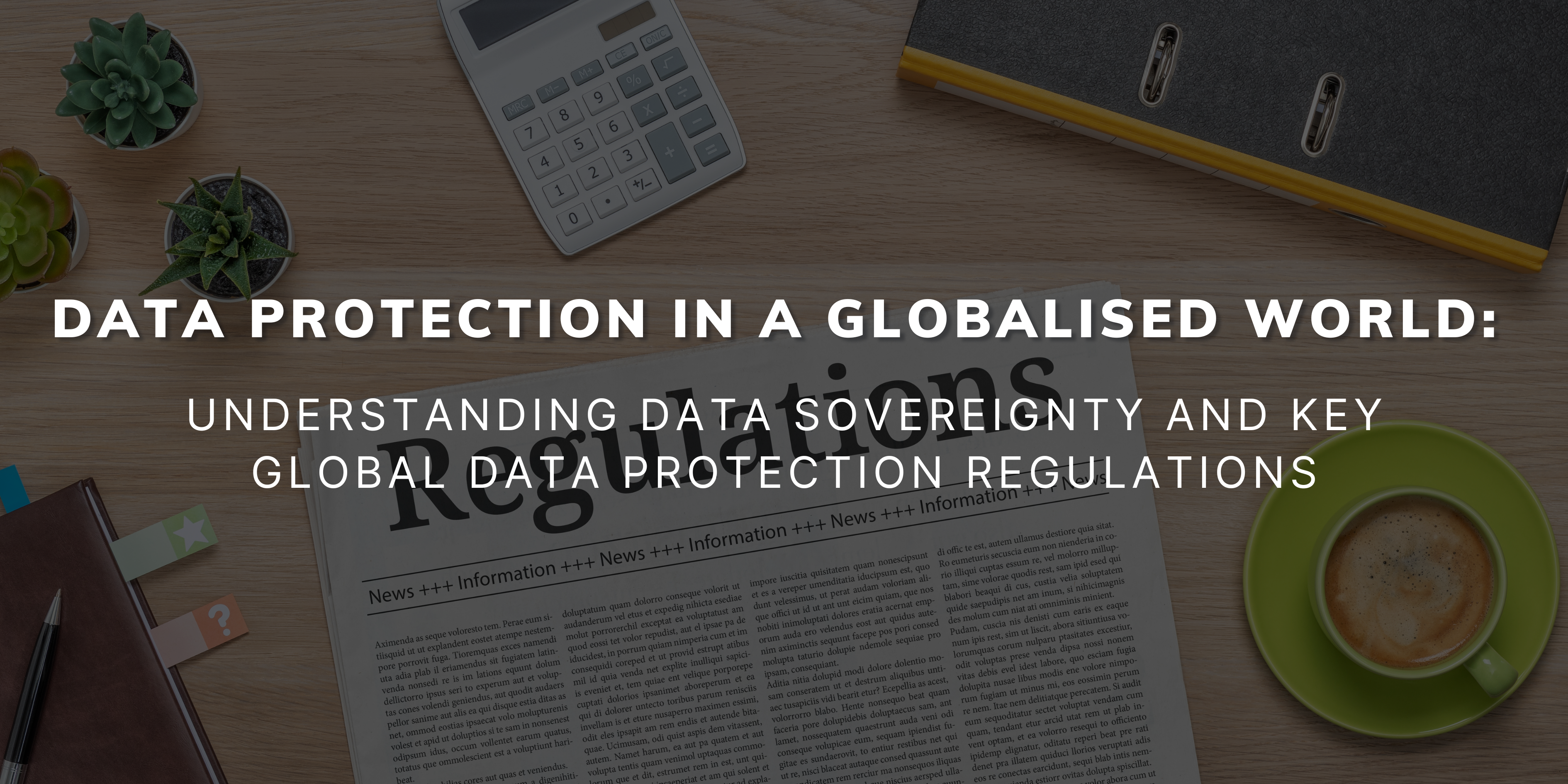
Data Protection in a Globalised World: Understanding Data Sovereignty and Key Global Data Protection Regulations
In the digital era, data sovereignty and data protection have become critical topics for businesses, governments, and individuals worldwide. With the increasing digitisation of personal and sensitive information, understanding the landscape of data sovereignty and key global data protection regulations is essential. This post will cover the basics of data sovereignty and delve into some of the most significant data protection regulations globally, including Australia’s Privacy Act and the European Union’s new AI Regulation.
Key Summary
- Data Sovereignty: Data must comply with the laws of the country where it’s collected or processed.
- Australia’s Privacy Act and APPs: Governs personal information management in Australia.
- EU’s GDPR: A stringent law affecting global entities, focusing on data privacy and security.
- EU AI Regulation: Proposes standards and risk classifications for AI systems.
- Business and Individual Impact: Essential for compliance and individual data protection.
What is Data Sovereignty?
Data sovereignty is the principle that data is subject to the laws and governance structures of the country where it is collected or processed. Importantly, it also emphasises an individual’s fundamental right to maintain, control, protect, and own their personal data. This concept recognises that individuals should have authority over their personal information, including how it is used, stored, and shared.
In a broader sense, data sovereignty addresses the rights of individuals to have their data treated according to the privacy laws and regulations of their own country, regardless of where the data is held. This principle is particularly relevant in an era where data is often transferred across international borders, and stored in various locations worldwide.
Key Global Data Protection Regulations
1. Australia’s Privacy Act and Australian Privacy Principles (APPs)
In Australia, the Privacy Act 1988 is the cornerstone of data protection legislation. This Act includes the Australian Privacy Principles (APPs), which set out how most Australian Government agencies, and certain private sector organisations, must handle, use, and manage personal information. Key principles include:
- Open and transparent management of personal information.
- Anonymity and pseudonymity.
- Collection of solicited personal information and dealing with unsolicited personal information.
- Notification of the collection of personal information.
- Use or disclosure of personal information.
- Direct marketing.
- Cross-border disclosure of personal information.
- Adoption, use, or disclosure of government-related identifiers.
- Quality of personal information.
- Security of personal information.
- Access to personal information.
- Correction of personal information.
2. European Union’s General Data Protection Regulation (GDPR)
The GDPR is one of the most stringent privacy and security laws in the world. Though it was drafted and passed by the European Union, it imposes obligations onto organisations anywhere, so long as they target or collect data related to people in the EU. The GDPR mandates a wide range of requirements for companies, including:
- Requiring consent for data processing.
- Anonymising collected data to protect privacy.
- Providing data breach notifications.
- Safely handling the transfer of data across borders.
- Requiring certain companies to appoint a data protection officer to oversee GDPR compliance.
3. New EU AI Regulation
The European Union is also leading the way in regulating artificial intelligence. The proposed Artificial Intelligence Act is a pioneering step in setting legal standards for AI systems. It aims to ensure that AI systems are safe and respect existing laws on fundamental rights and values. The AI Act classifies AI systems based on their risk level, with ‘high-risk‘ AI systems subject to stringent requirements before they can be put on the market.
Implications for Businesses and Individuals
Understanding these regulations is crucial for businesses operating across different jurisdictions. Non-compliance can result in significant fines and damage to reputation. For individuals, these regulations offer a level of protection over their personal information, ensuring their privacy is maintained in an increasingly digital world.
Conclusion
In summary, data sovereignty and global data protection regulations, including Australia’s Privacy Act and the EU’s GDPR and AI Regulation, are vital in today’s digital landscape.
- For businesses, understanding and complying with these laws is crucial to operate globally and protect consumer data.
- For individuals, these regulations offer necessary safeguards for personal information.
Staying informed and proactive in data management is essential as these regulations continue to evolve in response to technological advancements.
